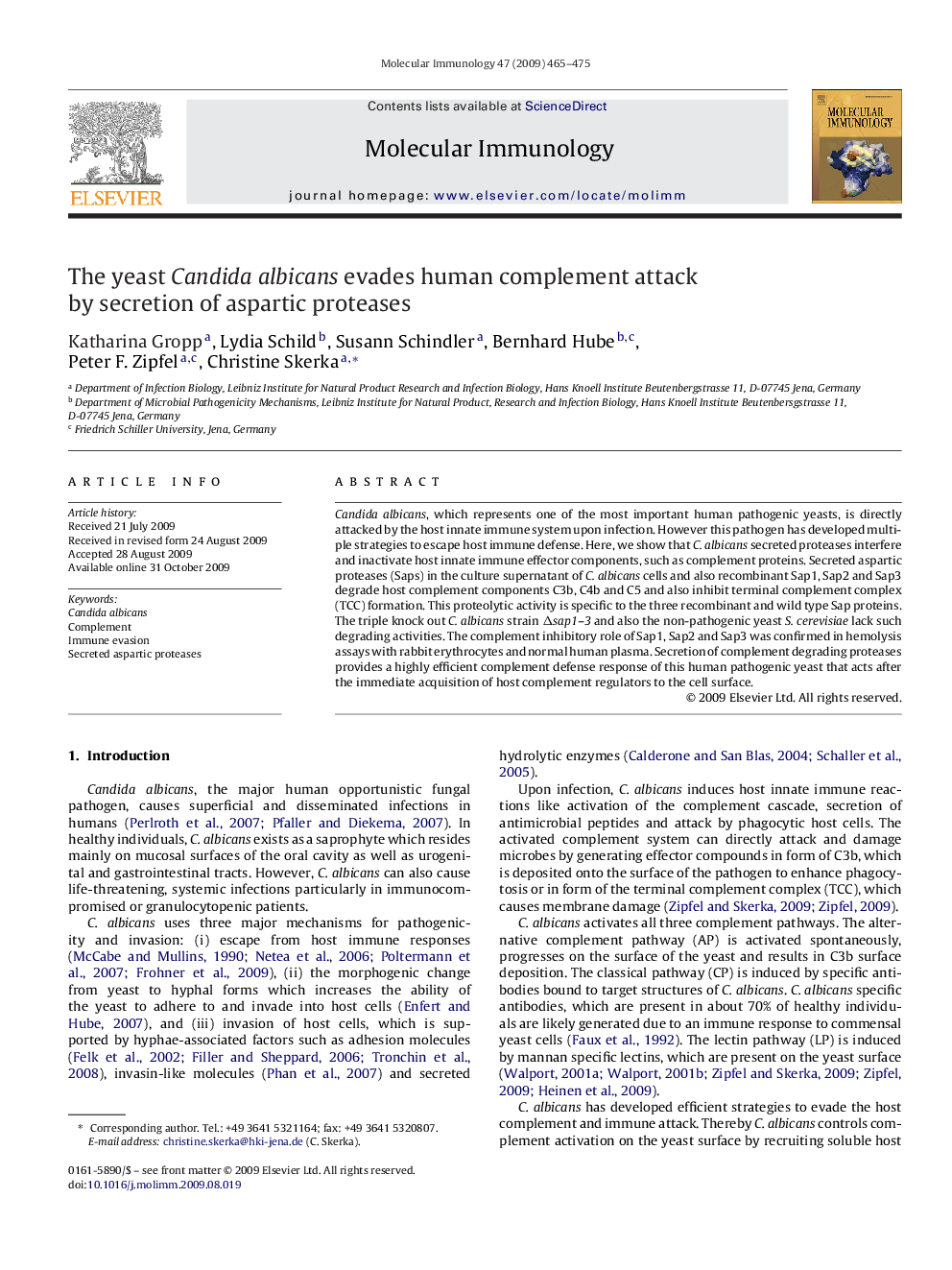| Article ID | Journal | Published Year | Pages | File Type |
|---|---|---|---|---|
| 5917624 | Molecular Immunology | 2009 | 11 Pages |
Abstract
Candida albicans, which represents one of the most important human pathogenic yeasts, is directly attacked by the host innate immune system upon infection. However this pathogen has developed multiple strategies to escape host immune defense. Here, we show that C. albicans secreted proteases interfere and inactivate host innate immune effector components, such as complement proteins. Secreted aspartic proteases (Saps) in the culture supernatant of C. albicans cells and also recombinant Sap1, Sap2 and Sap3 degrade host complement components C3b, C4b and C5 and also inhibit terminal complement complex (TCC) formation. This proteolytic activity is specific to the three recombinant and wild type Sap proteins. The triple knock out C. albicans strain Îsap1-3 and also the non-pathogenic yeast S. cerevisiae lack such degrading activities. The complement inhibitory role of Sap1, Sap2 and Sap3 was confirmed in hemolysis assays with rabbit erythrocytes and normal human plasma. Secretion of complement degrading proteases provides a highly efficient complement defense response of this human pathogenic yeast that acts after the immediate acquisition of host complement regulators to the cell surface.
Related Topics
Life Sciences
Biochemistry, Genetics and Molecular Biology
Molecular Biology
Authors
Katharina Gropp, Lydia Schild, Susann Schindler, Bernhard Hube, Peter F. Zipfel, Christine Skerka,
